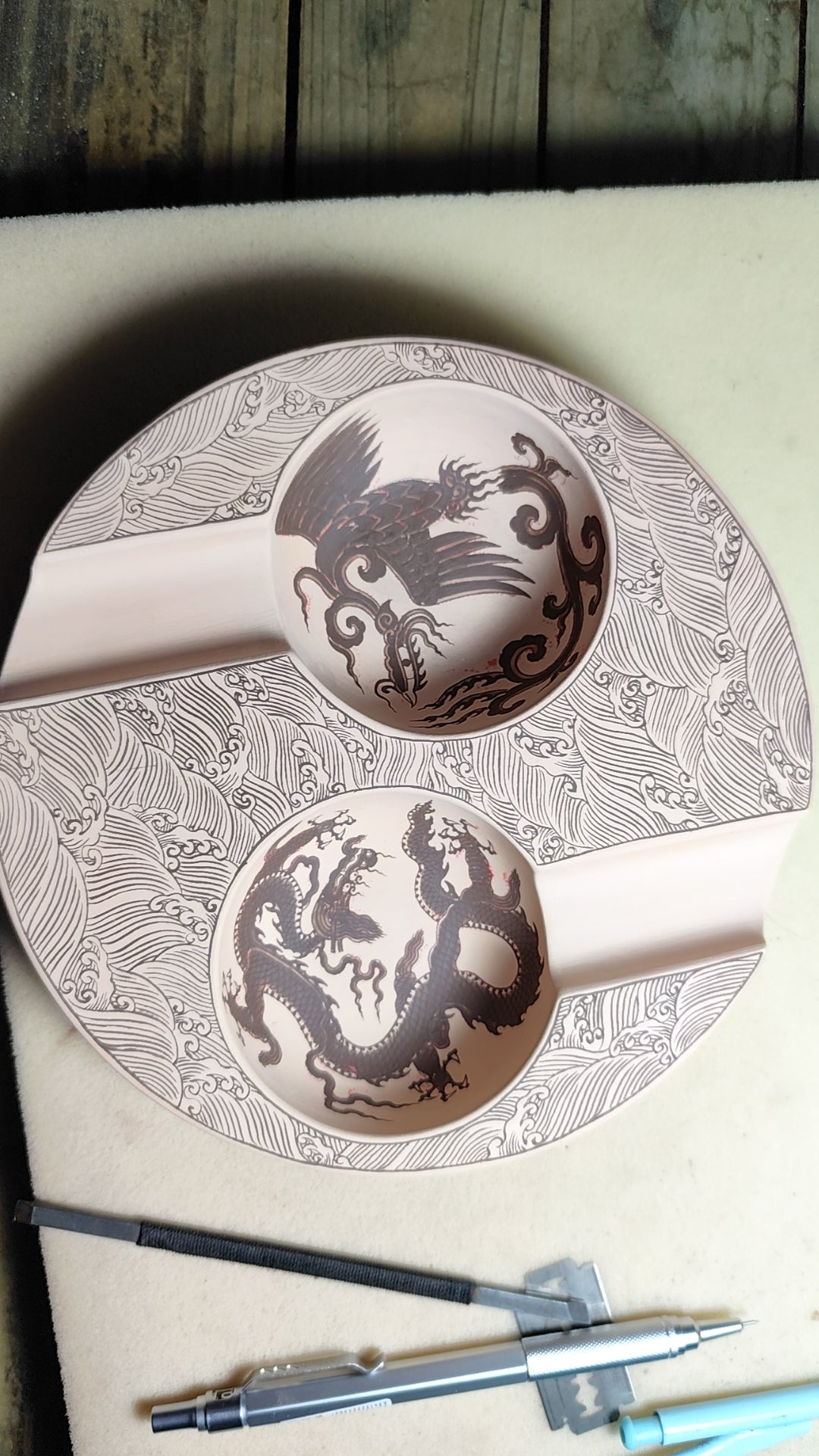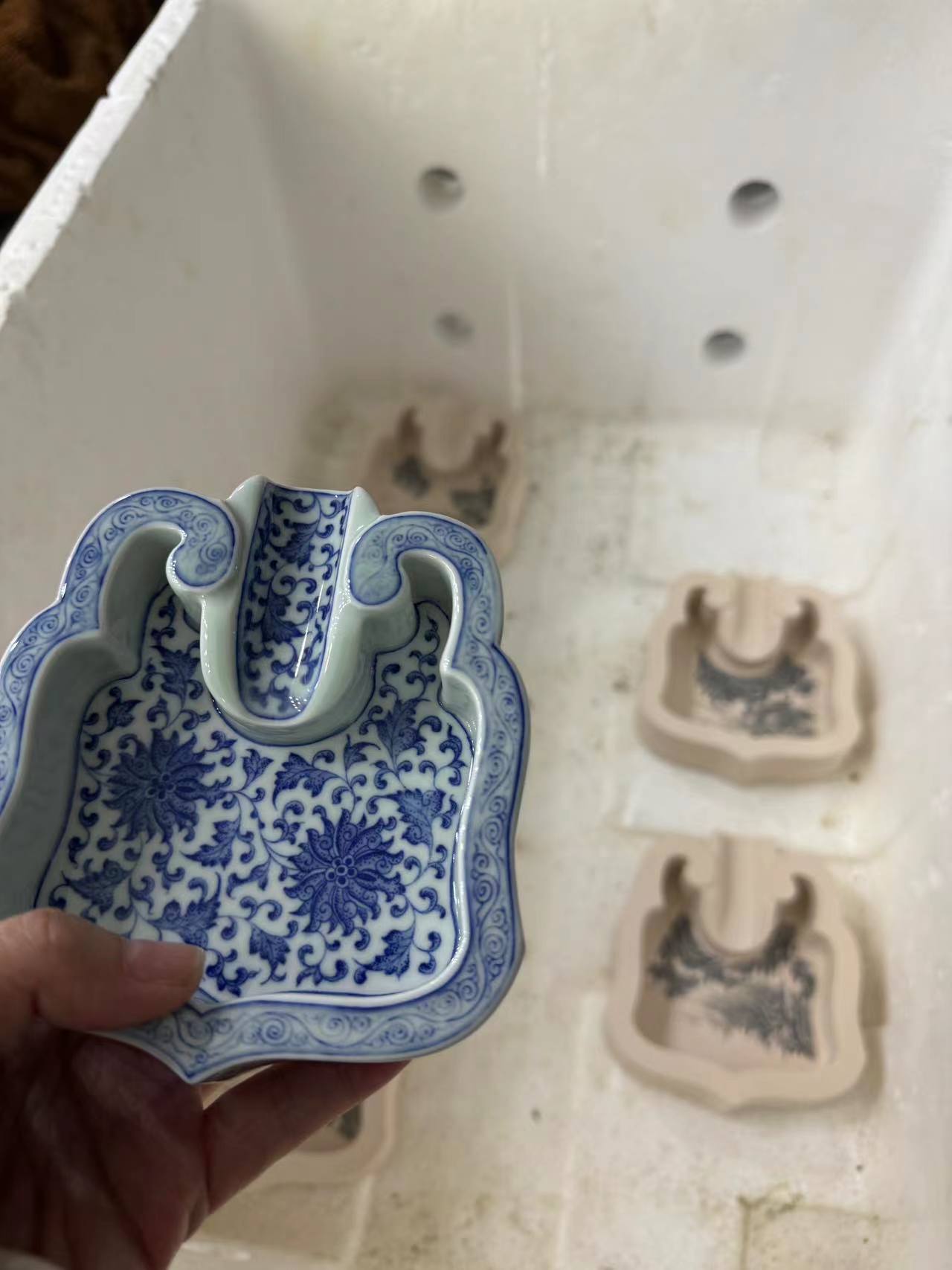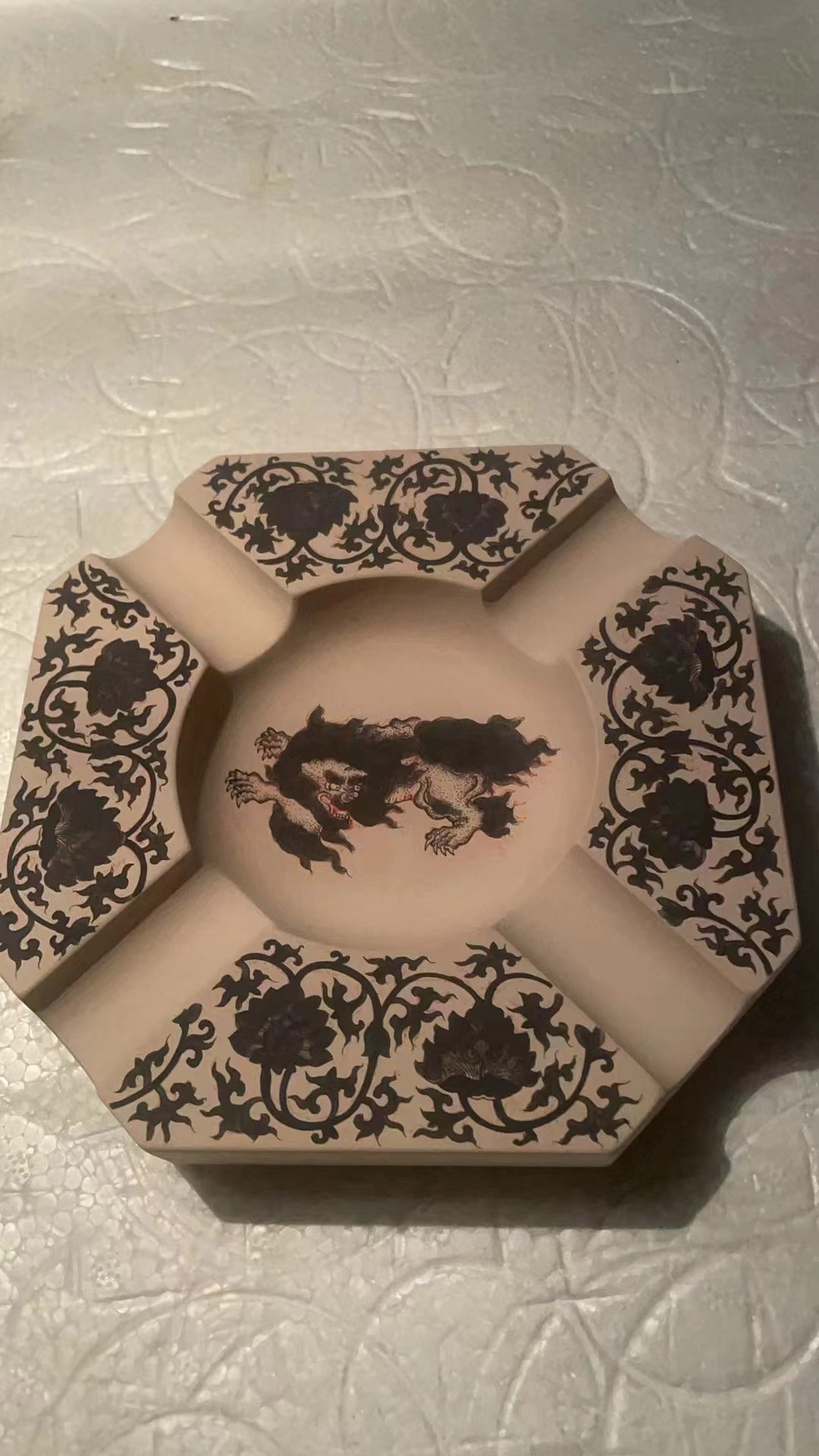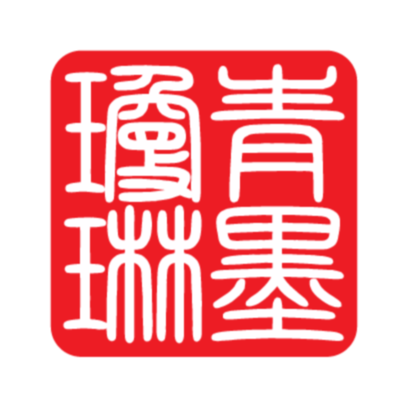
Craftsmanship
Over 700 years ago, kaolin was discovered in the Gaoling mountains of Jiangxi province,
revolutionizing porcelain making. Masters undergo complex procedures to transform kaolin
stones into a remarkable new clay. This involves grinding the stones using a giant,
water-powered pestle, mixing the powder with water, draining, and thickening it into mud. This
process allows for the creation of porcelain that is thinner, taller, and finer than ever before. In
the world of porcelain, kaolin is often referred to as the 'bone' of porcelain, while other minerals
are considered the 'meat,' highlighting kaolin's fundamental role in providing structure and
quality to the porcelain.

The process begins with recycling clay, which is mixed with water, sifted, and pressed to remove
excess water. The clay is then put through a pug mill to eliminate air bubbles. The resultant fresh
clay is cut and prepared for shaping. Unique designs are added to the porcelain, which are
removed from molds and finished with special clay to fill any holes. Decals are applied using
water to transfer images from paper to porcelain. Afterward, the porcelains are coated with a
clear glaze and loaded into a kiln. Masters are fired at temperatures up to 10,000°F. Once fired,
the porcelain is checked for quality, packaged, and either shipped or sold directly. Excess clay
from the process is collected for recycling, ensuring minimal waste.

Our porcelain originates from Jingdezhen, renowned as the birthplace and primary exporter of porcelain, where a meticulous and sustainable process is employed to craft items like bowls. Dating back to the Tang Dynasty and flourishing through the Song, Yuan, Ming, and Qing dynasties, Jingdezhen porcelain represents the epitome of Chinese craftsmanship. Introduction of kaolin clay significantly improved porcelain quality, while Yuan's white and blue porcelain marked a revolutionary era in colored porcelain production in China. Jingdezhen's handcrafted porcelain skills have evolved through generations, with a Chinese saying, "共计一杯工力 过 手七十二 方克成器," reflecting the intricate creation process involving seventy-two skilled hands. Each craftsman dedicates their life to perfecting a single aspect of the process, contributing to the diversification of products and reflecting Jingdezhen's unique collective craftsmanship.
